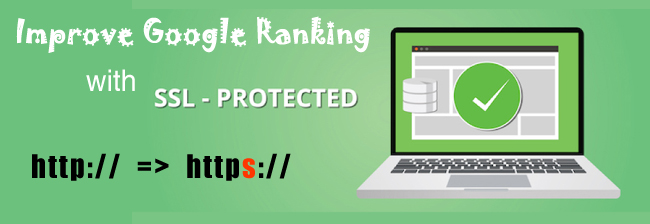
SSL Certificates
A website needs to install the SSL Certificate onto its web server to initiate a secure session with browsers. Once a secure connection is established, all web traffic between the web server and the web browser will be secure. Now Google Search Engine and other search engines encourage or gave priority or index those sites which have ssl certificates. So we recommend every person should install SSL certificates on their website.
When a certificate is successfully installed on your server, the application protocol (also known as HTTP) will change to HTTPs, where the ‘S’ stands for ‘secure’. Depending on the type of certificate you purchase and what browser you are surfing the internet on, a browser will show a padlock or green bar in the browser when you visit a website that has an SSL Certificate installed.
SSL Certificates bind together:
- A domain name, server name or hostname.
- An organizational identity (i.e. company name) and location.
SSL Certificates need to be issued from a trusted Certificate Authority's Root Certificate, and preferably by a 2048 bit Certificate that's widely distributed. The Root Certificate must be present on the end user's machine in order for the Certificate to be trusted. If it is not trusted the browser will present untrusted error messages to the end user. In the case of e-commerce, such error messages result in immediate lack of confidence in the website and organizations risk losing confidence and business from the majority of consumers.
.jpg)


